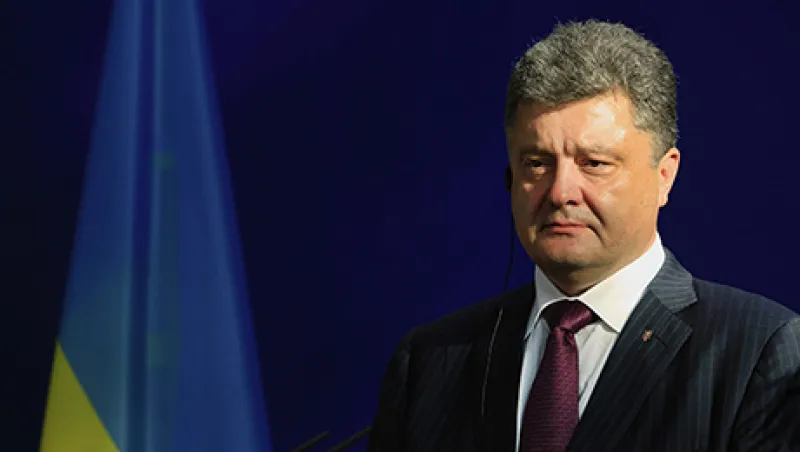
Petro Poroshenko, billionaire and Ukraine's newly elected president, listens during a news conference with Angela Merkel, Germany's chancellor, not pictured, at the Chancellery in Berlin, Germany, on Thursday, June 5, 2014. Merkel said stability in the Ukraine will require "the support of Russia -- and we will discuss what kind of support Russia is expected to contribute." Photographer: Krisztian Bocsi/Bloomberg *** Local Caption *** Petro Poroshenko
Krisztian Bocsi/Bloomberg

